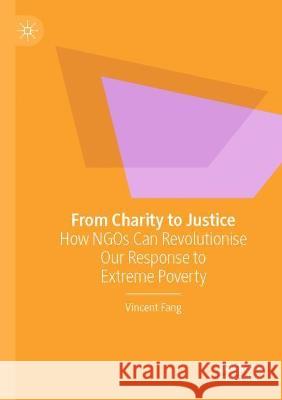From Charity to Justice: How Ngos Can Revolutionise Our Response to Extreme Poverty » książka
topmenu
From Charity to Justice: How Ngos Can Revolutionise Our Response to Extreme Poverty
ISBN-13: 9789811614354 / Angielski / Miękka / 2022
From Charity to Justice: How Ngos Can Revolutionise Our Response to Extreme Poverty
ISBN-13: 9789811614354 / Angielski / Miękka / 2022
cena 605,23 zł
(netto: 576,41 VAT: 5%)
Najniższa cena z 30 dni: 539,74 zł
(netto: 576,41 VAT: 5%)
Najniższa cena z 30 dni: 539,74 zł
Termin realizacji zamówienia:
ok. 22 dni roboczych
Bez gwarancji dostawy przed świętami
ok. 22 dni roboczych
Bez gwarancji dostawy przed świętami
Darmowa dostawa!
This book focuses on the ethical demands of extreme poverty and develops a political theory of practical change. Welding together political realism and moral aspirations, it argues that a re-imagined form of development NGO can help the global North break free from the dominant and persistent charity paradigm and drift towards a justice-based understanding of extreme poverty. It offers an original explanation of why the charity paradigm persists and why the “justice not charity” messages from development NGOs have changed few minds. The author argues that anyone concerned with a paradigm shift from charity to justice need to radically rethink the problem of political communication: who should communicate what messages about extreme poverty in what ways?Based on a rational choice critique of the competitive development NGO sector, the author calls for sector-wide reform and the emergence of a new political agent – the Avant-garde NGO - which transcends the charity frame that NGOs currently find themselves locked in. Further, inspired by literary theory and social psychology, he offers a fresh account of how the Avant-garde NGO could, through reflective public engagement, induce attitude change and lead genuine social and political reform.











